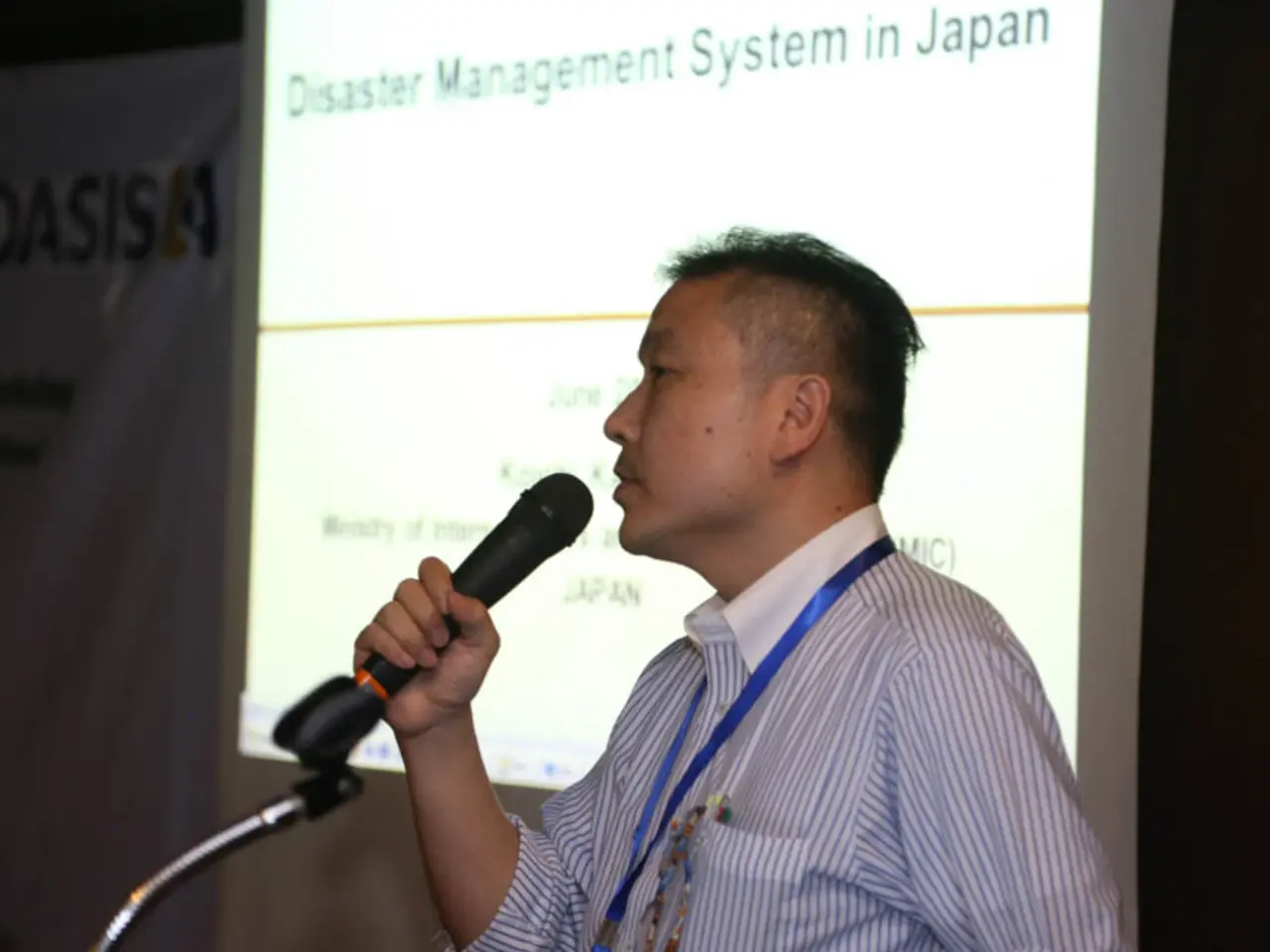Economies of Japan and Germany strengthen collaboration for securing financial stability
In a significant development, Japanese Foreign Minister Takeshi Iwaya and his German counterpart, Johann Wadephul, met in Tokyo on August 18 to discuss enhanced cooperation on economic security, particularly strengthening supply chains for critical minerals.
This meeting comes as Germany significantly increases its engagement in the Indo-Pacific region, acknowledging its strategic importance for both European and global security. Germany's increased involvement includes diplomatic visits, economic partnerships, security collaborations, and naval deployments, all aimed at supporting a rules-based order and countering assertive actions by powers like China.
Germany's diplomatic and security cooperation in the Indo-Pacific region is evident in its efforts to deepen ties with countries such as Japan, Indonesia, the Philippines, and Malaysia. The German Foreign Minister, Johann Wadephul, has been actively courting these partners to address political, economic, and security issues.
In a joint press conference after the meeting, Wadephul stated that China has attempted to change the status quo in the Indo-Pacific region, a concern that he and Iwaya share. Both ministers agreed that security in Europe and the Atlantic is inseparable from security in the Indo-Pacific region.
Japan welcomes Germany's increasing engagement in the Indo-Pacific region, as it bolsters the European naval footprint in the region alongside other European countries. Germany has increased its naval presence, conducting multiple deployments to the Indo-Pacific, signaling a commitment to freedom of navigation and maritime security.
In addition to security concerns, Germany also pursues partnerships focused on economic security and sustainable development. One such initiative is the Just Energy Transition Partnership with Indonesia, aiming to advance decarbonization and economic ties.
The new German government has placed the Indo-Pacific at a high diplomatic priority for 2025, aiming to diversify strategic partnerships and promote a free, open, and rules-based trade and security environment in collaboration with ASEAN and key partners like Japan and India.
In summary, Germany's increased engagement in the Indo-Pacific reflects an integrated approach combining diplomacy, security collaboration, economic cooperation, and naval presence to support regional stability and a rules-based order crucial to global and European interests. Japan and Germany have confirmed they will hold a bilateral meeting of foreign and defense ministers at an early date, further strengthening their strategic partnership in the region.
Read also:
- Weekly happenings in the German Federal Parliament (Bundestag)
- Southwest region's most popular posts, accompanied by an inquiry:
- Discussion between Putin and Trump in Alaska could potentially overshadow Ukraine's concerns
- Independence supporters in New Caledonia refuse agreement offering authority without a vote on sovereignty








